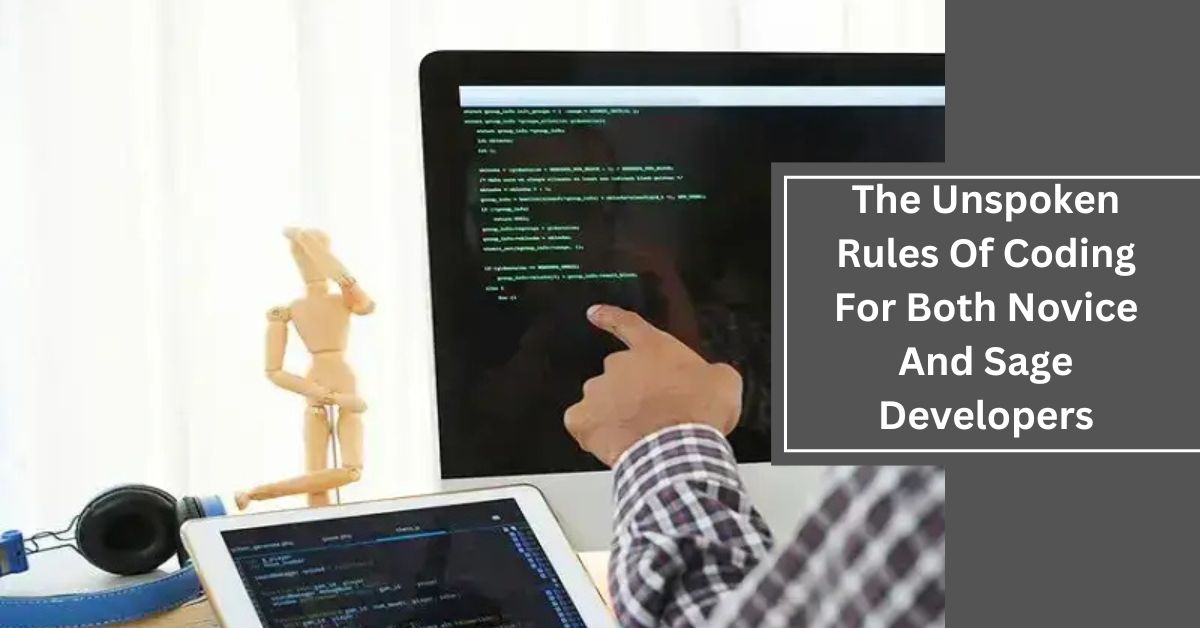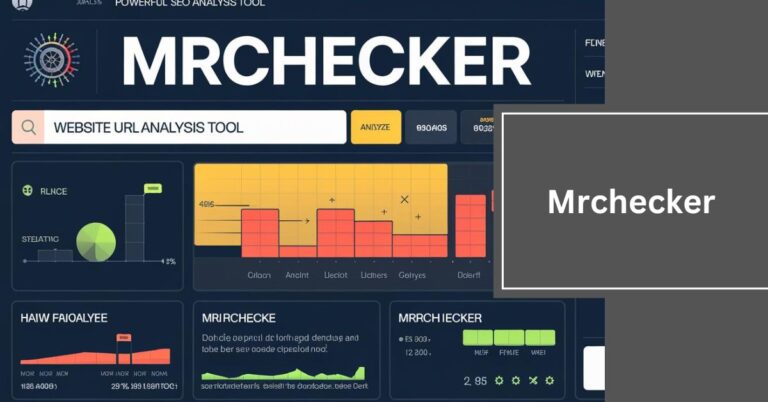The Unspoken Rules Of Coding For Both Novice And Sage Developers – Developer Tips!
As a beginner coder, I learned that following “the unspoken rules of coding for both novice and sage developers” really helped me improve. Simple things like writing clear code and getting feedback made a big difference.
The unspoken rules of coding for both novice and sage developers are about writing clear code, avoiding repeating yourself, and testing often. These practices make coding easier for everyone and help both beginners and experts create better, long-lasting projects.
Stay tuned with us as we talk about “the unspoken rules of coding for both novice and sage developers.” We’ll share simple tips to help you improve your coding, no matter your skill level! You’ll learn valuable lessons that can make your coding journey easier and more successful!
What Are The Unspoken Rules Of Coding?

- Write Readable Code: Ensure your code is easy to read and understand by using clear variable names and consistent formatting.
- Keep It DRY: Follow the “Don’t Repeat Yourself” principle by avoiding repetitive code and creating reusable functions or modules.
- Test Regularly: Implement testing early in the development process to catch bugs and ensure your code works as intended.
- Seek Feedback: Regularly ask for feedback on your code from peers or mentors to learn and improve your skills.
- Document Your Work: Provide clear documentation, both in-line and external, to explain your code and its purpose for future reference.
- Use Version Control: Master version control systems like Git to track changes, collaborate with others, and manage your codebase effectively.
- Understand the Problem First: Take the time to thoroughly understand the problem you’re solving before jumping into coding.
- Refactor Regularly: Continuously improve your code by refactoring it to enhance clarity, performance, and maintainability.
- Prioritize Security: Always consider security best practices to protect your code and users from vulnerabilities.
- Keep Learning: Stay updated with new technologies and practices to enhance your coding skills and adapt to changes in the industry.
Read More: Milwaukee Bucks Vs 76ers Match Player Stats – A Comprehensive Breakdown!
How Do Experienced Developers Apply These Unspoken Rules?
Experienced developers apply the unspoken rules of coding by following best practices that ensure code quality, maintainability, and collaboration. They write clean, readable code that others can easily understand, adhering to principles like DRY (Don’t Repeat Yourself) and SOLID for modular and efficient design. Regular testing and code reviews are key to their workflow, helping catch bugs early and maintain high standards.
They routinely refactor code to improve performance and clarity without changing functionality, and they document their work thoroughly for future reference. Security is also a priority, as they implement safe practices to protect their applications. These unspoken rules help experienced developers work efficiently, produce reliable code, and foster teamwork.
When Is The Right Time To Seek Feedback On My Code?
The right time to seek feedback on your code is once you have a working solution but before it’s finalized. This allows others to catch potential issues or suggest improvements early. You can also ask for feedback after implementing a major feature or during a code review to ensure best practices and standards are followed. Regular feedback throughout the coding process helps improve your skills and the quality of the project.
What Specific Coding Practices Should Beginners Focus On?

1. Write Clean and Readable Code:
Beginners should focus on writing code that is easy to understand. This means using proper indentation, spacing, and clear variable names. Clean code helps not only you but others who may need to read or maintain your code in the future.
2. Use Meaningful Variable Names:
Choosing descriptive and meaningful variable names is key to making your code self-explanatory. Instead of short or vague names, use words that describe the purpose of the variable. This small habit makes your code easier to follow.
3. Keep Functions Simple and Focused:
Each function or method should handle one task. Trying to do too much in a single function makes your code harder to debug and maintain. Breaking tasks into smaller functions improves code organization and clarity.
4. Learn Debugging Skills:
Knowing how to find and fix errors is a critical skill for any developer. Beginners should focus on learning how to use debugging tools and understand common errors in their code. Practice finding bugs and correcting them efficiently.
5. Use Version Control Systems:
Learning version control systems like Git is crucial for tracking changes in your code. This helps you keep track of different versions, collaborate with others, and undo mistakes. It’s a core practice that all developers, novice or experienced, should master.
6. Follow Consistent Code Formatting:
Maintaining consistent formatting throughout your code is important. Stick to a single style for indentation, bracket usage, and naming conventions. This helps ensure your code looks professional and is easier for others to read.
7. Understand Basic Algorithms and Data Structures:
Familiarize yourself with common algorithms and data structures like arrays, lists, and loops. Knowing when and how to use these can greatly enhance the performance and logic of your programs.
Why Is Documentation Important For Both Novice And Sage Developers?
Documentation is crucial because it makes code easier to understand and maintain, regardless of the developer’s experience level. For novice developers, well-documented code provides clarity and guidance, helping them follow along and learn.
For experienced developers, documentation ensures that complex systems or features are well-explained, making collaboration and future updates smoother. It saves time by preventing confusion and reduces errors when multiple people work on the same project.
How Can I Stay Updated With The Latest Coding Practices?
Staying updated with the latest coding practices involves continuous learning through various channels. Follow coding blogs, subscribe to newsletters, and participate in coding forums to stay informed about new trends.

Engaging in open-source projects and attending coding workshops or webinars are great ways to learn from others. Additionally, following industry leaders on social media platforms like GitHub or Twitter can help you discover emerging practices and tools.
Read More: Phillies Vs Red Sox Match Player Stats – In-Depth Analysis And Insights!
Why Is Code Readability Important In Programming?
- Easier Collaboration: Readable code allows multiple developers to work on the same project without confusion, facilitating teamwork and communication.
- Simplified Maintenance: Clear and understandable code is easier to maintain, debug, and update, reducing the time spent on troubleshooting and fixes.
- Faster Onboarding: New team members can quickly grasp the logic and structure of the codebase, accelerating their ability to contribute effectively.
- Improved Code Quality: Readable code often leads to better organization and structure, enhancing overall code quality and functionality.
- Long-Term Sustainability: Well-documented and readable code stands the test of time, making it easier to adapt and extend as project requirements evolve.
FAQs:
1. What Is The Difference Between Front-End And Back-End Development?
Front-end development focuses on the user interface and experience, dealing with everything users interact with on a website or application. Back-end development involves server-side programming, databases, and application logic, ensuring that everything functions correctly behind the scenes.
2. What Programming Language Should I Start With As A Beginner?
Python is often recommended for beginners due to its simple syntax and readability. It has a vast community and extensive libraries, making it versatile for various applications, including web development, data analysis, and automation.
3. How Do I Choose The Right Development Tools?
Choosing the right development tools depends on your specific needs, project requirements, and personal preferences. Consider factors like ease of use, community support, compatibility with your workflow, and features that enhance productivity.
4. What Are The Best Practices For Writing Secure Code?
To write secure code, always validate user input, sanitize data, and use secure authentication methods. Regularly update your libraries and frameworks, and stay informed about common security vulnerabilities to protect your applications.
5. How Important Is Learning Algorithms And Data Structures For Developers?
Learning algorithms and data structures is crucial for developers, as they form the foundation of problem-solving in programming. Understanding these concepts helps you write efficient code, optimize performance, and improve your overall programming skills.
Conclusion:
Mastering the unspoken rules of coding is essential for both novice and sage developers. These principles enhance code readability, maintainability, and security, ultimately leading to better collaboration and more successful projects.
By embracing these practices, developers can navigate the ever-evolving tech landscape with confidence and create high-quality code that stands the test of time.
Read More:
- Mets Vs Cleveland Guardians Match Player Stats – A Comprehensive Breakdown!
- Diamondbacks Vs Baltimore Orioles Match Player Stats – A Deep Dive Into The Game And Key Player Performances!
- Spelling Bee Buddy – A Comprehensive Guide To Mastering The Nyt Spelling Bee!
- Arizona Diamondbacks Vs Seattle Mariners Match Player Stats – A Comprehensive Breakdown!







